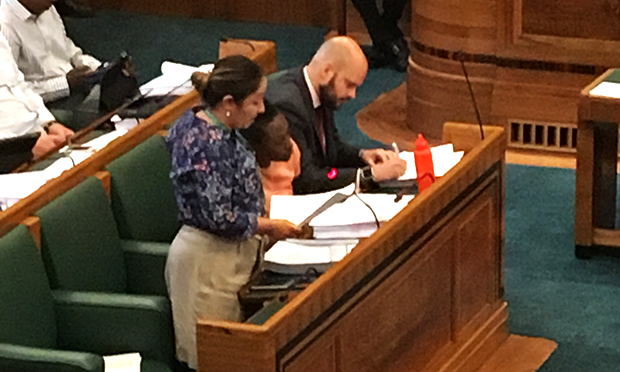Councillors call for greater focus on ‘growing population’ with rare cancers

Two of Hackney’s leading councillors has called on the government to send a message to people living rare and uncommon cancers “that they matter too”.
At a moving Town Hall meeting in October, Hackney councillors unanimously passed a motion to raise awareness of, and support training and research into, rare and uncommon cancers.
Now Hackney Mayor Philip Glanville (Lab & Co-op) and Deputy Mayor Feryal Clark (Lab, Hoxton East & Shoreditch) have written to health and social care secretary of state Matt Hancock calling for improved access to diagnosis, expertise, therapeutics and research collaboration across Europe.
Glanville and Clark said: “The government has committed to diagnosing 75 per cent of cancers at an early stage by 2028. This will save thousands of lives.
“However, this commitment cannot be met without diagnosing some rare and less common cancers earlier, and without delivering the medical staff to meet the needs of a growing population of patients with rare and less common cancers.
“Patients living with rare and less common cancers need to hear a clear message that they matter too, and that this government will commit to deliver improved access to diagnosis, expertise, therapeutics and research collaboration across Europe following the outcome of Brexit.
“We also want to see rare and less common cancers treated more equally when it comes to national campaigns and publicity around cancer, and how collectively we can better respond.”
In what the Town Hall says was the first motion of its kind in the country, councillors pledged their solidarity with those living with rare and uncommon cancers in a near-unanimous show of hands for those who had lost someone to the disease.
A cancer is considered rare if fewer than six in 100,000 people is diagnosed with it each year, with people living with uncommon types reporting difficulties in diagnosis, treatment and care.
For instance, diagnoses of neuroendocrine tumoours (NETs) take between three to five years, by which time the disease has spread through the body, with patients facing restricted access to appropriate expertise, with a lack of awareness and understanding.
Cllr Yvonne Maxwell (Lab, Hoxton West), who seconded Cllr Rebecca Rennison’s October motion, said at the time: “Aretha Franklin was Queen of Soul and Steve Jobs, King of Apple Macs. Their deaths made headlines everywhere, but few people know they both died from NETs.
“Early protection has to be a public health priority, and information is key to a patient’s quality of life.
“I appeal to all councillors of all parties to play their part in getting this message out.”
Twenty-two people in Hackney will be diagnosed with NETs each year, and more than 100 residents are currently living with the uncommon cancer.
According to Town Hall figures, 305,683 people were diagnosed with cancer in England in 2017, of which 47 per cent were rare cancers. In the same year 135,885 people died of cancer in England, of which over half had a rare or less common cancer.
Hackney’s leadership is now asking Matt Hancock to “urgently” address the NHS staffing crisis, as well as to focus more attention on research and guarantee best practice and collaborative research following Brexit.
The Department of Health & Social Care was approached for comment, but was unable to respond during the pre-election period.
EDIT – This article was updated at 10:49 on 6/12/2019 to make clear that the Department of Health & Social Care was unable to comment due to pre-election purdah rules.
